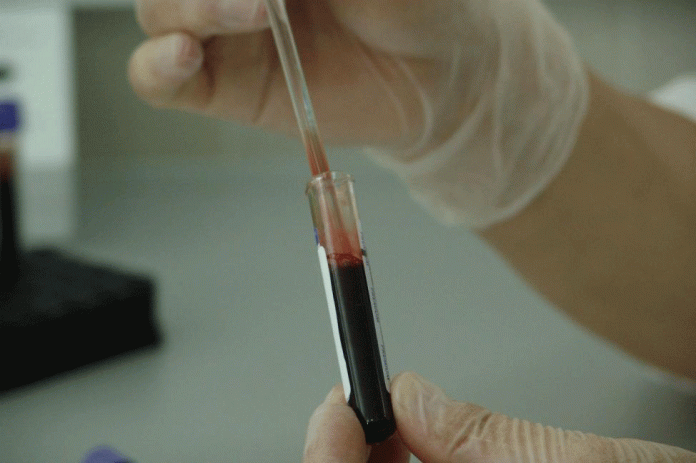A study published Tuesday in The Lancet suggests a second patient has been cured of HIV.
According to the authors, the patient underwent “successful” stem cell transplantation from donors with a HIV-resistant gene.
There was no active viral infection in the patient’s blood 30 months after antiviral therapy was stopped, they report, suggesting the patient has been cured.
“Our findings show that the success of stem cell transplantation as a cure for HIV, first reported nine years ago in the Berlin patient, can be replicated,” co-author Ravindra Kumar Gupta, University of Cambridge in England, said in a statement. “It is important to note that this curative treatment is high-risk, and only used as a last resort for patients with HIV who also have life-threatening hematological malignancies. Therefore, this is not a treatment that would be offered widely to patients with HIV.”RELATED Fewer than 1 in 4 teen boys at risk for HIV get tested
The London patient, Adam Castillejo, 40, revealed his identity Tuesday to the New York Times. He said, in a statement, that he chose to go public a year after being cured of the virus because he hoped “to help improve people’s understanding of the science and HIV generally.”
The so-called “Berlin patient” was the first HIV patient to be reported cured of the virus three and half years after undergoing similar treatment, in 2011. The approach in that case included total body irradiation, two rounds of stem cell transplantation from a donor with an HIV-resistant gene called CR5Δ32/Δ32 and chemotherapy.
Although most people with HIV can manage the virus with currently available antivirals and live a long life, experimental research of this kind can provide insight into how a cure might be developed. The goal of stem cell transplantation, in this case, is to make the virus unable to replicate in the patient’s body by replacing their immune cells with those of the donor, as body irradiation and chemotherapy targets any residual HIV virus.RELATED Soaring HIV drug costs jeopardize end to epidemic, experts say
The patient reported in the most recent study — the “London patient” — underwent one stem-cell transplantation and a reduced-intensity chemotherapy drug regimen, without whole body irradiation. In 2019, the research team reported that the patient’s HIV was in remission, and this study provides follow-up viral load blood test results at 30 months.
Results showed no active viral infection was detected in samples of the patient’s blood at 30 months, or in their cerebrospinal fluid, semen, intestinal tissue, and lymphoid tissue 29 months after stopping antiviral therapy. The patient had a healthy CD4 cell count, suggesting they have recovered well from the transplant procedure, with their CD4 cells replaced by cells derived from the HIV-resistant transplanted stem cells.
In addition, 99 percent of the patient’s immune cells were derived from the donor’s stem cells, indicating the stem-cell transplant had been successful.RELATED HIV triggers ‘amnesia’ to smallpox in immune system, study says
Comparing to the treatment used on the Berlin patient, the authors highlight that the London patient represents a step toward a less intensive treatment, showing that long-term remission of HIV can be achieved using reduced intensity drug regimens — one stem cell transplant procedure and without total body irradiation.
“The London and Berlin patients are examples of using the CCR5 gene in curative therapies outside of gene editing,” said co-author Dimitra Peppa, of the University of Oxford in England. “There are still many ethical and technical barriers — gene editing, efficiency and robust safety data — to overcome before any approach using CCR5 gene editing can be considered as a scalable cure strategy for HIV.”
UPI

Putting a spotlight on business, inventions, leadership, influencers, women, technology, and lifestyle. We inspire, educate, celebrate success and reward resilience.















